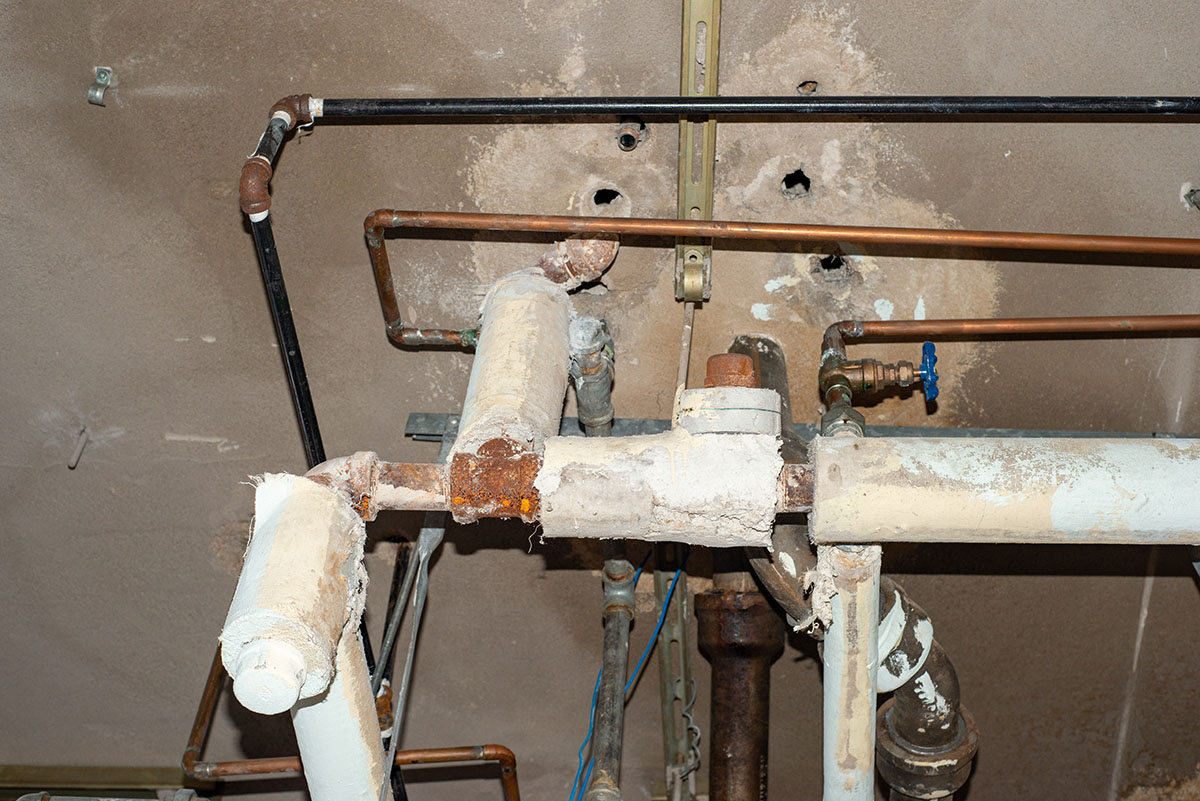Pleural mesothelioma is a type of cancer that affects the lining of the lungs. Recognizing its symptoms early can be crucial for effective treatment. Here are some key points to understand:
Early Warning Signs
- Shortness of breath: This can happen even during simple activities.
- Persistent cough: A cough that doesn’t go away may be a sign.
- Chest pain: Discomfort or pain in the chest area can indicate issues.
Common Symptoms
- Fatigue: Feeling unusually tired can be a common symptom.
- Weight loss: Unexplained weight loss may occur without trying.
- Fluid buildup: Accumulation of fluid in the chest can lead to breathing difficulties.
Advanced Stage Symptoms
- Severe pain: Pain may become more intense as the disease progresses.
- Difficulty swallowing: This can happen as the cancer spreads.
- Coughing up blood: This is a serious symptom that requires immediate medical attention.
How Pleural Mesothelioma Symptoms Differ from Other Diseases
Comparing with Lung Cancer
Pleural mesothelioma and lung cancer can show similar symptoms, but there are key differences:
- Location of Tumors: Mesothelioma primarily affects the lining of the lungs, while lung cancer originates in the lung tissue itself.
- Symptoms Onset: Symptoms of mesothelioma often appear later than those of lung cancer, making early detection more challenging.
- Common Symptoms: While both may cause coughing and chest pain, mesothelioma is more likely to cause fluid buildup in the chest (pleural effusion).
Distinguishing from Asbestosis
Asbestosis is a lung disease caused by asbestos exposure, similar to mesothelioma. However, they differ in several ways:
- Nature of Disease: Asbestosis is a chronic lung condition, while mesothelioma is a type of cancer.
- Symptoms: Asbestosis typically leads to shortness of breath and a persistent cough, but does not usually cause the severe chest pain associated with mesothelioma.
- Progression: Mesothelioma can progress rapidly, whereas asbestosis tends to develop slowly over time.
Misdiagnosis Risks
Misdiagnosing pleural mesothelioma can lead to serious consequences. Here are some common risks:
- Similar Symptoms: Many diseases, like pneumonia or chronic obstructive pulmonary disease (COPD), can mimic mesothelioma symptoms, leading to confusion.
- Delayed Treatment: A wrong diagnosis can delay the necessary treatment, worsening the patient’s condition.
- Emotional Impact: Misdiagnosis can cause stress and anxiety for patients and their families, as they may not receive the right support or care.
The Importance of Early Detection of Pleural Mesothelioma Symptoms
Benefits of Early Diagnosis
Early detection of pleural mesothelioma can significantly improve a patient’s chances of successful treatment. Here are some key benefits:
- Better Treatment Options: When diagnosed early, patients may have access to a wider range of treatment choices.
- Improved Survival Rates: Early intervention can lead to longer survival times.
- Enhanced Quality of Life: Patients may experience fewer symptoms and a better quality of life with timely treatment.
Screening Methods
There are several methods used to screen for pleural mesothelioma symptoms:
- Imaging Tests: X-rays and CT scans can help identify abnormalities in the lungs.
- Physical Exams: Doctors may check for signs of fluid buildup or other symptoms during routine check-ups.
- Symptom Questionnaires: Patients may be asked about their symptoms to help guide further testing.
Challenges in Early Detection
Despite the benefits, there are challenges in detecting pleural mesothelioma early:
- Non-Specific Symptoms: Symptoms can be similar to other diseases, making diagnosis difficult.
- Lack of Awareness: Many people are unaware of the disease and its symptoms, leading to delays in seeking help.
- Limited Screening Programs: Not all healthcare providers offer routine screenings for at-risk individuals.
Medical Tests to Identify Pleural Mesothelioma Symptoms
Imaging Tests
Imaging tests are crucial in spotting pleural mesothelioma. They help doctors see inside the body and check for any unusual changes. Common imaging tests include:
- X-rays: These can show fluid buildup in the lungs.
- CT Scans: These provide detailed pictures of the chest and can reveal tumors.
- MRI Scans: These are used to get a clearer view of soft tissues and can help in assessing the extent of the disease.
Biopsy Procedures
A biopsy is a key test for diagnosing pleural mesothelioma. It involves taking a small sample of tissue to check for cancer cells. There are different types of biopsy procedures:
- Needle Biopsy: A thin needle is used to remove tissue from the chest area.
- Thoracoscopy: A small camera is inserted into the chest to take tissue samples.
- Surgical Biopsy: This is a more invasive procedure where a larger sample is taken during surgery.
Blood Tests
Blood tests can also play a role in diagnosing pleural mesothelioma. While they cannot confirm the disease, they can provide helpful information:
- Mesothelin Levels: High levels of this protein may indicate mesothelioma.
- Complete Blood Count (CBC): This test checks overall health and can reveal signs of cancer.
- Tumor Markers: Specific markers in the blood can suggest the presence of cancer.
Risk Factors Associated with Pleural Mesothelioma Symptoms
Occupational Exposure
- Asbestos Exposure: The primary risk factor for pleural mesothelioma is exposure to asbestos, a material once commonly used in construction and manufacturing.
- Workplace Safety: Jobs in industries like shipbuilding, construction, and insulation are particularly risky due to potential asbestos exposure.
- Duration of Exposure: The longer a person is exposed to asbestos, the higher their risk of developing mesothelioma.
Environmental Factors
- Airborne Asbestos: Living near areas where asbestos is mined or processed can increase the risk of inhaling asbestos fibers.
- Contaminated Soil: Some regions have soil that contains asbestos, which can pose a risk to nearby residents.
- Secondhand Exposure: Family members of workers who handle asbestos may also be at risk due to fibers brought home on clothing.
Genetic Predisposition
- Family History: Individuals with a family history of mesothelioma may have a higher risk of developing the disease.
- Genetic Mutations: Certain genetic changes can make some people more susceptible to the effects of asbestos.
- Immune System Factors: A weakened immune system may also play a role in increasing the risk of developing pleural mesothelioma.
When to Consult a Specialist for Pleural Mesothelioma Symptoms
Signs That Require Immediate Attention
If someone experiences certain symptoms, it’s crucial to see a specialist right away. These signs may include:
- Severe chest pain that doesn’t go away
- Shortness of breath that worsens over time
- Unexplained weight loss or fatigue
Choosing the Right Specialist
Finding the right doctor can make a big difference in treatment. Here are some tips:
- Look for a pulmonologist who specializes in lung diseases.
- Consider a medical oncologist who focuses on cancer treatment.
- Check if the doctor has experience with mesothelioma specifically.
Preparing for Your Appointment
Being ready for the doctor’s visit can help make the most of it. Here are some steps to take:
- Write down symptoms and when they started.
- List any medications being taken.
- Bring medical records or test results if available.
Treatment Options for Pleural Mesothelioma Symptoms
Surgical Interventions
Surgery is often a key part of treating pleural mesothelioma. It can help remove tumors and improve breathing. Here are some common types of surgery:
- Pleurectomy: This involves removing part of the pleura, the lining around the lungs.
- Decortication: This surgery removes the tumor from the lung surface.
- Lobectomy: In this procedure, a lobe of the lung is taken out if the cancer is localized.
Chemotherapy and Radiation
Chemotherapy and radiation are used to kill cancer cells and shrink tumors. They can be used alone or together:
- Chemotherapy: This treatment uses drugs to target and destroy cancer cells. It can be given before or after surgery.
- Radiation Therapy: This method uses high-energy rays to kill cancer cells. It can help relieve symptoms and is often used after surgery.
Emerging Therapies
New treatments are being developed to improve care for pleural mesothelioma patients. Some of these include:
- Immunotherapy: This treatment helps the body’s immune system fight cancer.
- Targeted Therapy: This approach uses drugs that specifically target cancer cells, minimizing damage to healthy cells.
- Gene Therapy: This experimental treatment aims to fix or replace faulty genes that cause cancer.
Legal Rights and Pleural Mesothelioma Symptoms
Understanding Your Legal Options
When someone is diagnosed with pleural mesothelioma, it’s important to know their legal rights. Here are some key points to consider:
- Compensation: Patients may be entitled to financial help for medical bills, lost wages, and other costs.
- Filing a Claim: There are specific steps to take when filing a claim, including gathering evidence and understanding deadlines.
- Legal Representation: Hiring a lawyer who specializes in mesothelioma cases can help navigate the legal process.
Filing a Claim
Filing a claim can be a complex process. Here are some steps to follow:
- Gather Evidence: Collect medical records, work history, and any documents related to asbestos exposure.
- Consult a Lawyer: Speak with a legal expert to understand the best approach for your case.
- Submit Your Claim: Follow your lawyer’s guidance to file your claim correctly and on time.
Compensation and Settlements
Compensation can vary based on several factors. Here are some things to keep in mind:
- Types of Compensation: This can include money for medical expenses, pain and suffering, and lost income.
- Settlement Offers: Sometimes, companies may offer a settlement for asbestos exposure before going to court. It’s important to evaluate these offers carefully.
- Trial Outcomes: If a case goes to trial, the outcome can lead to different compensation amounts based on the jury’s decision.
How to Document Pleural Mesothelioma Symptoms for Legal Cases
Keeping Medical Records
- Collect all medical documents: This includes test results, treatment plans, and doctor’s notes.
- Track symptoms over time: Write down when symptoms started, how they changed, and any treatments received.
- Organize records: Keep everything in a folder or digital file for easy access.
Gathering Witness Statements
- Talk to family and friends: Ask them to share their observations about your health and symptoms.
- Get written statements: Have them write down what they noticed and when.
- Include coworkers: If applicable, ask colleagues who may have seen your condition worsen.
Working with Legal Experts
- Find a lawyer experienced in mesothelioma cases: They can guide you on what documents are needed.
- Share your records: Provide your lawyer with all collected medical records and witness statements.
- Follow their advice: They may suggest additional steps to strengthen your case.
Support Resources for Pleural Mesothelioma Patients
Patient Advocacy Groups
Patient advocacy groups play a crucial role in supporting individuals diagnosed with pleural mesothelioma. These organizations provide valuable resources, including:
- Information about the disease and treatment options.
- Support networks where patients can connect with others facing similar challenges.
- Educational materials to help patients understand their rights and options.
Financial Assistance
Dealing with pleural mesothelioma can be financially overwhelming. Several resources can help ease the burden:
- Non-profit organizations that offer grants or financial aid for medical expenses.
- Government programs that provide assistance for healthcare costs.
- Crowdfunding platforms where friends and family can contribute to medical bills.
Emotional Support Services
Emotional well-being is just as important as physical health. Patients can find support through:
- Counseling services that specialize in cancer care.
- Support groups where patients can share their feelings and experiences.
- Hotlines that offer immediate support and guidance.
Preventive Measures to Reduce Pleural Mesothelioma Symptoms
Workplace Safety
- Use Protective Gear: Always wear masks and other protective equipment when working in areas where asbestos might be present.
- Follow Safety Protocols: Adhere to all safety guidelines and regulations to minimize exposure to harmful substances.
- Regular Training: Participate in training sessions about asbestos safety and handling to stay informed.
Regular Health Check-ups
- Routine Screenings: Schedule regular check-ups with a healthcare provider to monitor lung health.
- Early Detection: Discuss any symptoms with a doctor as soon as they appear to catch potential issues early.
- Family History Review: Share your family’s medical history with your doctor to assess risk factors.
Lifestyle Changes
- Quit Smoking: If a person smokes, quitting can significantly lower the risk of lung diseases, including mesothelioma.
- Healthy Diet: Eating a balanced diet rich in fruits and vegetables can help strengthen the immune system.
- Stay Active: Regular exercise can improve overall health and lung function, making it easier to detect any changes.




